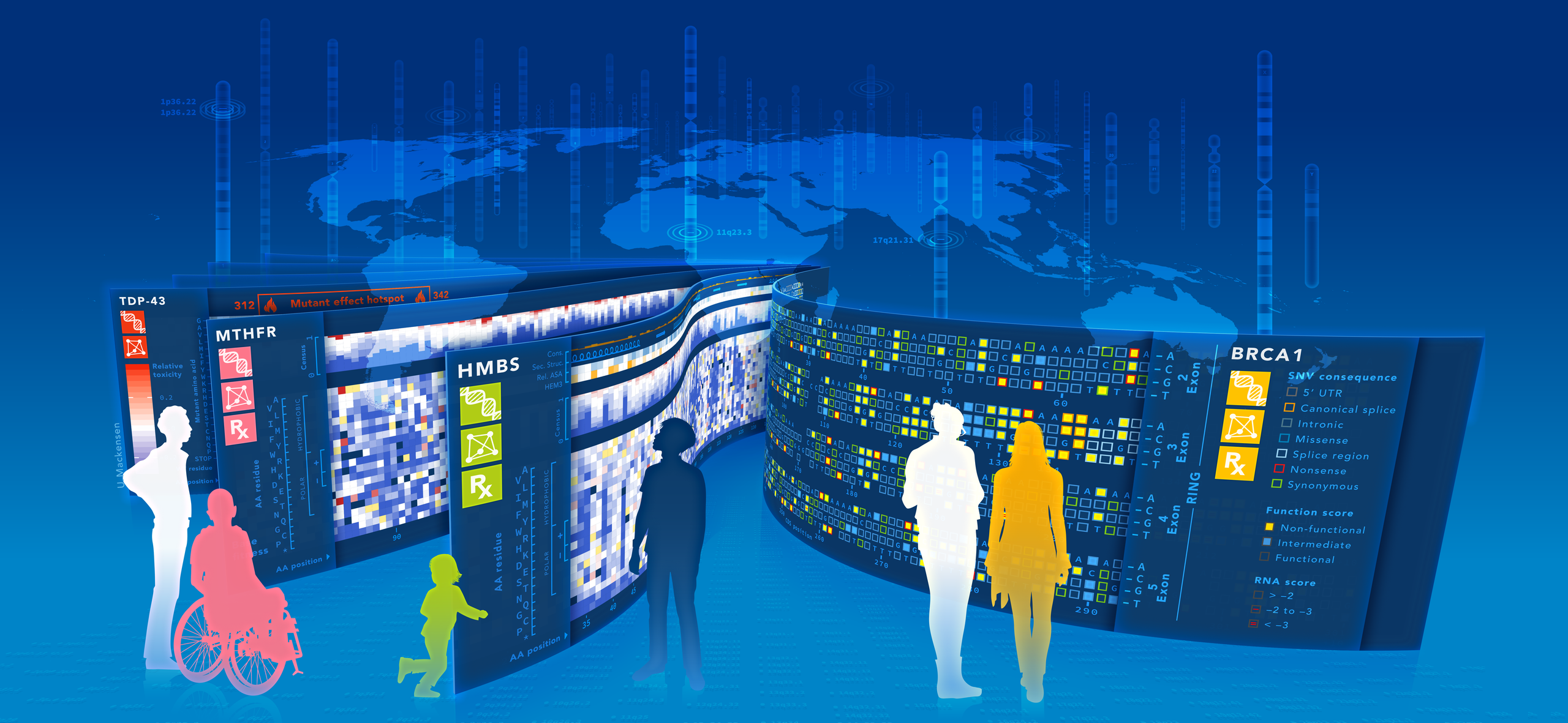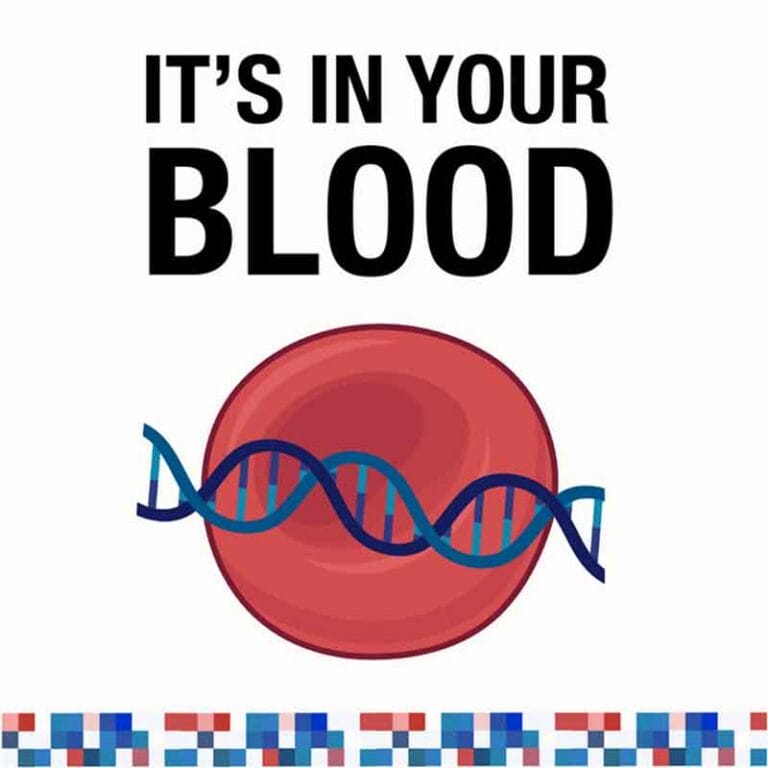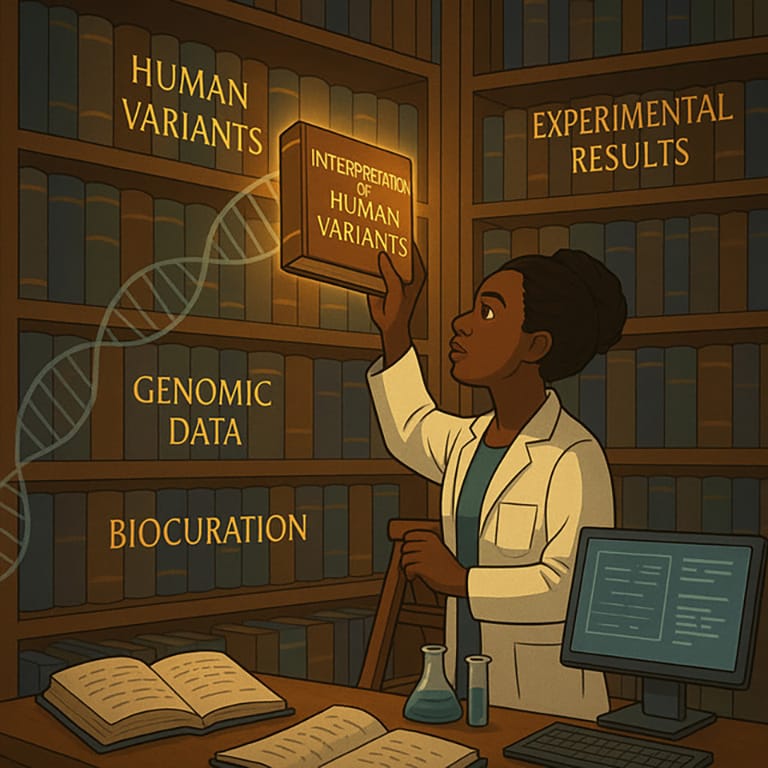Atlas of Variant Effects Alliance:
Precision medicine at nucleotide resolution

Art by Uta Mackensen (CC BY-ND) Image Description: Background: A world map and chromosome idiogram. Foreground: People moving amongst and inspecting larger than life Variant Effect Maps of clinically important genes BRCA1, HMBS, MTHFR and TDP-43.
The vision of the Alliance is to create comprehensive variant effect maps for important regions of human and human pathogen genomes that could ultimately assist in the diagnosis, prognosis and treatment of disease. The goal of our Alliance is to bring together data generators, curators and consumers, along with funders and other stakeholders, to set standards, share tools and develop strategy.
By describing the effects of variants in the genome, the atlas will accelerate and empower biological research, drug discovery and medical practice.
Graphic Credits: kjpargeter Freepik, Sayeh Gorjifard and Uta Mackensen
Latest Event
25 March 2026, Melbourne, Australia.
Mutational Scanning Symposium 2026
Event jointly organized by: AVE and St Vincent's Institute of Medical Research
Latest AVE Mention in the News
26 February 2026.
Thompson is one of the featured presenters at the Ninth Annual Mutational Scanning Symposium, March 25 through 27 in Melbourne, Australia
Latest Seminars
7 April 2026.
Yuta Yamamoto is an Instructor of the Division of Cardiovascular Medicine, Stanford. He completed a postdoc training at the Ashely lab at Stanford. His research focuses on decoding genetic variants associated with hypertrophic cardiomyopathy using scalable functional genomics.
7 April 2026.
Olivia Zhang recently obtained her Ph.D. in Chemistry and Chemical Biology from Harvard University in Dr. Brian Liau’s Lab. Her research focused on understanding chemical and genetic mechanisms to regulate the LSD1-HDAC1/2-CoREST (LHC) repressor complex. In particular, she investigated the mechanism of cancer hotspot mutations in the E3 ligase KBTBD4 in promoting the degradation of CoREST. Using deep mutational scanning and a diverse array of biochemical and cell based assays, her work along with extensive collaborations reveal the mutational landscape...moreAVE in Action
Image credit: Ivan Martí
2025 Mutational Scanning Symposium (IBEC Barcelona Spain)
Image credit: Ivan Martí
2025 Mutational Scanning Symposium (IBEC Barcelona Spain)
Broad Mutational Scanning Symposium
Toronto Lab
Clare Turnbull and Shawn Fayer
MAVE workshop
MAVE workshop
Hasan and Marcin Marsh Lab
Cell Factories
Broad Mutational Scanning Symposium
Broad Mutational Scanning Symposium
Broad Mutational Scanning Symposium
Image credit: Greg Moss (Wellcome Sanger Institute)
Larissa Matsuyama, Fernanda Arriaga González and Rebeca Olvera León (SGE team, Welcome Sanger Institute)




